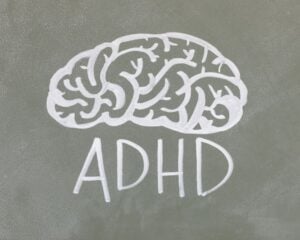Attention deficit hyperactivity disorder (ADHD) affects both kids and adults, making focus, impulse control, and organization daily struggles. While stimulants like Adderall or Ritalin are common treatments, they don’t work for everyone—some need alternatives. Abilify (aripiprazole), typically used for mood disorders, is gaining attention for ADHD management due to its unique effect on dopamine and serotonin. Could this medication help where others fall short? The answer lies in comprehension of its benefits, risks, and how it fits into treatment plans.
Understanding ADHD and ADHD Medications
Comprehending more than simply sporadic difficulties focusing or feeling restless. Attention Deficit Hyperactivity Disorder is a neurodevelopmental condition marked by persistent inattention, hyperactivity, and poor impulse control. These symptoms stem from imbalances in brain chemicals like dopamine and norepinephrine, which regulate focus and behavior.
Medications help handle these challenges, with stimulants like Ritalin or Adderall boosting dopamine and norepinephrine to enhance attention and impulse control. However, stimulants might induce side effects like insomnia or appetite loss. Non-stimulants, such as Strattera, operate differently by targeting norepinephrine alone, offering an alternative for those who don’t tolerate stimulants well. While effective, non-stimulants can bring dizziness or fatigue.
Insight into these options aids individuals in making knowledgeable choices about managing ADHD.
Diagnosing and Treating Adult ADHD
| Key Steps in Diagnosis | Common Symptoms | Treatment Approaches |
|---|---|---|
| Reviewing medical history | Chronic forgetfulness | Multimodal approach |
| Psychological testing | Poor time management | Behavioral therapy |
| Ruling out other conditions | Impulsive decisions | Lifestyle adjustments |
| Symptom tracking | Difficulty focusing | Medication options |
| Family history assessment | Emotional dysregulation | Skill-building strategies |
Treatment often combines therapies to address both cognitive and daily challenges, ensuring better management of Adult ADHD.
Introducing Aripiprazole (Abilify)
While managing adult ADHD frequently involves a mix of behavioral strategies and medication, some individuals might not respond fully to standard treatments. Aripiprazole, sold as Abilify, is an antipsychotic that works differently through modulating dopamine and serotonin levels. Though not FDA-approved for ADHD, its off-label usage has shown promise in improving focus and reducing impulsivity.
- Partial agonist – It balances dopamine instead of blocking or overstimulating it.
- Dual action – Targets both dopamine and serotonin, which could help with mood and attention.
- Off-label potential – Studies suggest it might aid those with treatment-resistant ADHD.
- Mechanism of action – Stabilizes brain chemistry without the extremes of traditional stimulants.
This approach presents hope for those requiring alternatives.
Aripiprazole in ADHD Treatment
How could a medication like Abilify, typically used for other conditions, assist someone grappling with ADHD? Research suggests Abilify (aripiprazole) may aid in managing ADHD symptoms through modulating dopamine receptors and balancing dopamine and serotonin levels, which play key roles in focus and impulse control.
Clinical trials reveal it can reduce inattention and hyperactivity, especially in adults who don’t respond well to stimulants. The efficacy and safety of Abilify for ADHD are still being investigated, but doses of 5–15 mg daily have shown promise. Potential side effects, like weight gain or drowsiness, require careful monitoring.
While not a primary treatment, Abilify may fit into an inclusive treatment plan when other options prove inadequate, offering hope for better symptom management.
Mechanisms of Action in ADHD
What exactly happens in the brain as Abilify is used for ADHD? Its unique mechanism of action involves modulating dopamine and serotonin, which helps regulate attention and impulse control. The ability to modulate dopamine receptors can help stabilize mood and improve cognitive function, supporting daily functioning.
- Dopamine Modulation: Abilify adjusts dopamine levels, which helps with ADHD symptoms like poor focus and distractibility.
- Serotonin Influence: Through affecting serotonin, it reduces hyperactivity and impulsive behaviors.
- Mood Stabilization: Emotional dysregulation in ADHD may improve due to its balancing effects.
- Cognitive Benefits: Working memory and executive function often showcase enhancement, aiding better decision-making.
These actions collectively address core ADHD challenges, though individual responses vary. The medication’s impact on receptors can help some patients more than others, depending on brain chemistry.
Dosage and Administration for ADHD
As starting Abilify for ADHD, many ponder what dosage functions most ideal and how to take it securely. The typical Abilify dosage ranges from 5-15 mg daily, but healthcare professionals often begin with a lower dose and adjust gradually.
Gradual dose titration helps minimize side effects like weight gain or metabolic changes, which are crucial to monitor, especially in children. Growth and development must be tracked since these can be affected over time.
Regular check-ins with healthcare professionals safeguard the dose adjustments align with the patient’s needs, balancing therapeutic effect with safety. Since responses vary, careful follow-up is key to finding the right amount.
Open communication about any changes in health helps tailor treatment for the best result.
Clinical Evidence Supporting Aripiprazole for ADHD
Research has investigated the effectiveness of aripiprazole (Abilify) for managing ADHD symptoms, with studies showing promising results. Clinical trials highlight its potential to improve focus and reduce hyperactivity through balancing dopamine and serotonin levels.
- Children: A 2011 trial found 55% of kids aged 6-17 saw symptom improvement with Abilify.
- Dosage: Ideal doses range from 5-15 mg daily, though individual needs vary.
- Mechanism: Via modulating dopamine, Abilify might help regulate attention and impulsivity.
- Adults: Restricted but growing evidence suggests benefits for adults with ADHD, though more research is needed.
While not FDA-approved for ADHD, Abilify’s off-label use offers hope for those unresponsive to traditional treatments. Its dual action on dopamine and serotonin makes it a unique option for managing symptoms.
Potential Side Effects and Risks
Abilify could cause common side effects like weight gain, drowsiness, or nausea, which can be bothersome but often manageable.
More serious risks, such as metabolic changes or movement disorders, require careful observation by a healthcare provider.
Awareness of these potential effects assists patients and families make informed decisions about treatment.
Common Side Effects
Patients taking Abilify for ADHD often notice certain side effects, some more bothersome than others. While not everyone experiences them, the most common include:
- Physical discomforts: Drowsiness, fatigue, and headaches may occur, sometimes making daily tasks harder.
- Metabolic changes: Abilify can lead to weight gain and alter blood sugar or cholesterol levels, especially in younger patients.
- Digestive issues: Nausea is a frequent complaint, though it often lessens over time.
- Movement concerns: Rarely, some develop tardive dyskinesia, causing uncontrollable muscle movements.
Regular check-ups help track these effects, and adjustments—like dosage changes—can ease them. While side effects vary, knowledge of them prepares users to manage their treatment better.
Serious Health Risks
While many side effects of Abilify are manageable, some carry more serious health risks that require attention. Weight gain, drowsiness, headaches, and stomach upset may seem moderate but can worsen over time.
Anxiety and metabolic changes, like increased blood sugar and cholesterol, also pose long-term concerns. More severe risks include tardive dyskinesia, causing uncontrollable muscle movements, and neuroleptic malignant syndrome, a rare but dangerous reaction. These conditions need immediate medical care.
Monitoring is critical, especially for younger patients, to catch problems promptly. Though not everyone experiences these effects, being aware helps in making informed decisions. Doctors often adjust doses or suggest alternatives if side effects become troubling.
Staying informed guarantees safer use of Abilify for ADHD management.
Comparing Aripiprazole to Traditional ADHD Treatments
Although stimulants like Adderall and Ritalin have long been the go-to treatments for ADHD, newer options like aripiprazole (Abilify) offer a different approach to managing symptoms.
Mechanism of Action: Stimulant medications boost dopamine and norepinephrine directly, while Abilify works as a partial dopamine and serotonin modulator, stabilizing brain activity without overstimulating it.
Side Effects: Stimulants often cause insomnia or appetite loss, whereas Abilify can lead to weight gain or drowsiness, necessitating close monitoring.
Dosage Flexibility: Traditional ADHD treatments have well-established dosing, but Abilify’s ideal dosage for ADHD (5-15 mg/day) is less defined, requiring personalized adjustments.
Patient Suitability: Abilify might assist adults unresponsive to stimulants, providing an alternative if traditional treatments fail or cause intolerable side effects.
This comparison highlights how Abilify provides a unique option for ADHD management.
Future Research Directions for Aripiprazole in ADHD
As aripiprazole continues to gain attention as a potential ADHD treatment, researchers are working to better understand its role in managing symptoms. Ongoing clinical trials are examining its long-term efficacy and safety, especially in pediatric populations, where the recommended dosing regimen remains uncertain.
Studies also look into aripiprazole as an adjunct therapy, combining it with traditional medications to improve results. Scientists are investigating its impact on cognitive function, including memory and problem-solving, while uncovering the specific mechanisms of action behind its potential benefits.
Future studies aim to clarify how aripiprazole affects ADHD symptoms differently across age groups, ensuring safer and more effective use. By focusing on these gaps, researchers hope to refine treatment approaches for those who struggle with standard ADHD therapies.
Conclusion
While Abilify isn’t an initial ADHD treatment, emerging research suggests it could help when stimulants fall short. Could adjusting dopamine and serotonin ease symptoms better for some people? Preliminary studies show promise, but questions remain. Until more data confirms its role, careful monitoring is key. For adults still struggling with focus or impulsivity, this unconventional option might be worth exploring—under a doctor’s watchful eye, of course.




